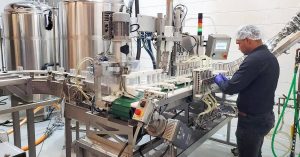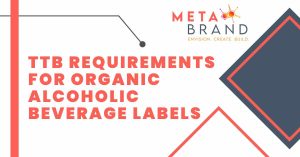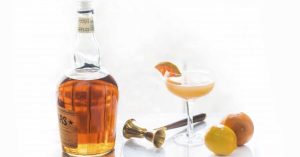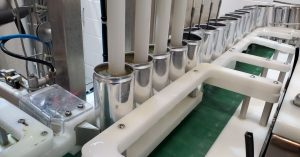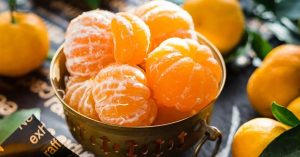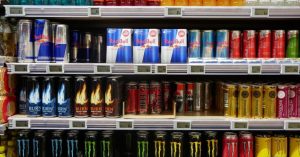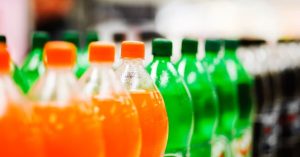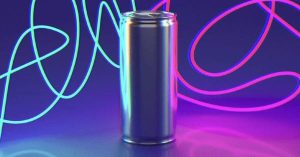The growth of beverage product development has made the beverage industry profitable yet highly competitive. Demand for innovative and delectable products, customized beverage offerings, and a heightened focus on quality and sustainability have significantly increased the need for effective product development processes.
It’s no longer enough to just come up with beverage concepts and recipes these days. Product developers must also consider the entire beverage production process, from sourcing materials and ingredients to beverage production, packaging, distribution, and marketing.
Customers expect beverage products to be safe, consistent, and high-quality. This is only possible through a well-thought-out, streamlined beverage product development process. You don’t have to reinvent the wheel when establishing an efficient process. A few tips and tricks are all you need to get started.
What Is Beverage Product Development?
Beverage product development is a comprehensive process that involves the creation of beverage products from idea generation, feasibility, concept development, and sensory evaluation to production and distribution.
It’s designing and creating beverage products that align with a given set of parameters (including flavor profile, nutritional value, target customer, and so on) while meeting industry regulations, standards, and trends. Market analysis, beverage formulation and testing, scale-up production, and packaging are integral to product development.
Keeping abreast of industry trends, changes in customer preferences, and beverage regulations will help you create unique, safe, and consistent beverage products that meet customer expectations and gives you a competitive edge. Speed to market, cost-effectiveness, and scalability will ensure profitability, sustainability, and long-term success.
Why You Need an Efficient Beverage Product Development Process
A streamlined production process is a recipe for a successful and profitable beverage business. An efficient beverage product development process offers several benefits, including:
Reduced Production Costs and Greater Profitability
Production costs account for a significant chunk of beverage business expenses. Materials, labor, and equipment are some of the significant costs associated with beverage production. An efficient beverage product development process helps to identify and reduce unnecessary expenses, thereby increasing profitability. You will minimize wastage, optimize resource usage, and identify cost-effective production methods.
Improved Product Quality and Safety
The beverage industry is highly competitive, and product quality and safety are non-negotiable. Investing in efficient production processes ensures your products meet stringent industry standards and regulations.
Quality control measures at every stage of production guarantee beverage safety, consistency, and customer satisfaction. You will avoid unnecessary delays, re-works, and loss of profits due to product recalls.
Timely Product Delivery and Enhanced Brand Reputation
Timely beverage product delivery can help build your brand’s reputation with customers. A well-thought-out beverage product development process ensures you meet customer expectations and delivery deadlines.
This helps build customer trust, maintain healthy relationships, and attract new customers. You will also manage to focus on product innovation, marketing strategies, and other growth opportunities instead of wasting time on inefficient production processes.
Reduced Time to Market
Getting your products to market quickly is essential in today’s fast-paced beverage industry. You need to be agile and ready to adapt to customer demands, trends, and changes in beverage regulations. A streamlined product development process supports speedy launch cycles, enabling you to design, produce, test, and launch beverage products in a shorter timeframe.
Greater Flexibility
A beverage product development process that is flexible and adaptive to customer needs offers greater scope for innovation, experimentation, and creativity. It can also help you launch new product lines, manufacture customized products, or scale production quickly to meet sudden demand surges. Tapping into emerging trends, experimenting with different flavors and textures, or introducing new beverage product lines can be achieved more efficiently.
Efficient beverage product development involves careful planning, management, and execution to reap its benefits. You will manage to optimize ingredient utilization, streamline production processes, and reduce wastage to drive profits. There are also tips for creating an efficient beverage production process you can leverage.
7 Effective Tips to Ensure an Efficient Beverage Product Development Process
The success of beverage product development lies in the efficiency of its processes. Effective production processes ensure customer satisfaction, reduce operational costs, and improve brand reputation. Apply the following tips to ensure an efficient beverage product development process:
1. Create a Clear Roadmap
Outline clear goals, timelines, and deadlines for each production stage. Specify responsibilities to ensure smooth operations and faster delivery cycles. You can also implement tracking systems to monitor progress and identify bottlenecks in the beverage production process. Standard beverage production processes include:
Product feasibility:
Identifying beverage product design requirements and testing recipes and ingredients. Market research is critical to ensure your product’s commercial viability, competitive advantage, and potential for success.
Product formulation:
Establishing beverage production protocols, sourcing materials and suppliers, and developing beverage recipes. Prototypes are tested for taste, flavor, and texture before going full scale.
Pilot testing:
Conducting beverage product trials to assess performance, stability, and shelf-life. This is critical to identify design flaws, optimizing beverage recipes, and fine-tuning production processes.
Production and product packaging:
Manufacturer selection, beverage production processes, quality control measures, distribution, and delivery of beverage products. Labeling, packaging, and branding should be consistent with industry regulations.
Skipping or rushing any of these stages can cause costly delays, design flaws, and product recalls. A roadmap serves as a visual reminder of the development process, ensuring transparency, accountability, and efficiency in beverage production.
2. Invest in the Right Beverage Development Equipment
The efficiency of alcoholic beverage product development heavily relies on the quality and performance of your production equipment. Invest in reliable beverage manufacturing systems to ensure consistency, quality, and cost-effectiveness.
Automation, robotics, and high-tech beverage production systems can speed up product development and reduce human errors. Standard machinery you need includes:
- Mixing and blending equipment to combine beverage ingredients
- Clean-in-place (CIP) units to clean beverage tanks and pipes without disassembly
- Filtration systems to remove solids, impurities, and bacteria
- Filling and bottling equipment for beverage packaging
- Labeling and coding machines to affix labels, expiration dates, barcodes, and other necessary information.
- Quality control systems to ensure beverage recipes adhere to standard quality parameters
Cloud-based beverage production systems can also help facilitate remote monitoring, management, and data analysis. You can determine beverage production trends, identify shortfalls, and adjust recipes for optimal performance.
3. Secure Quality Ingredients
Consistency and high-quality ingredients are critical for beverage product success. Low-quality products can taint your brand reputation, trigger recalls, and incur hefty fines. Establish partnerships with certified beverage ingredient suppliers who can source, store, and deliver high-quality and safe ingredients.
Review their credentials, ask for references, and analyze samples for nutritional content, flavor profile, and beverage quality. Carefully consider costs, delivery times, and industry expertise to avoid overspending and delays in beverage production.
4. Establish Robust Beverage Quality Control Measures
Beverage production involves a complex network of operations, and one hiccup can compromise beverage quality and safety. Establish stringent quality control protocols, procedures, and standards to ensure your recipes adhere to government regulations, health and safety standards, industry guidelines, and customer requirements.
Quality assurance processes should include the following:
- Sanitization protocols
- Product testing and analysis
- Auditing beverage production processes and equipment for compliance
- Setting beverage-specific safety and quality standards
- Implementing beverage traceability systems
Testing beverage samples for nutrient content, flavor profiles, shelf-life, alcohol strength, and sensory evaluation is essential. Invest in beverage testing equipment, such as chromatography systems and oxygen meters, to accurately analyze ingredients and properties.
5. Gather and Leverage Beverage Industry Data
Data-driven product development can significantly reduce beverage production time, eliminate waste, and boost beverage quality. Leverage industry data to understand customer trends and preferences, identify potential market opportunities, and develop beverage recipes that resonate with target customers. Gather intelligence on:
- Consumer trends and purchasing patterns
- Beverage segmentation and pricing strategies
- Popular beverage recipes and flavor profiles
- Regulatory updates, health and safety standards, and labeling requirements
- Competitor analysis
You can access industry data from beverage associations, magazines, beverage reviews and surveys, online forums, and social media sites. Predictive analytics and beverage data visualization tools can also help you uncover beverage development insights, optimize recipes and make better business decisions.
6. Adopt Sustainable Beverage Practices
Sustainability has become an integral part of beverage product development. Consumers expect beverage companies to take steps to reduce energy and water consumption, minimize waste, and protect the environment. Sustainable practices you can adopt include:
- Eco-friendly packaging materials
- Water conservation techniques
- Waste management systems
- Energy-efficient beverage production processes
- Certified organic ingredients
Sustainable practices can enhance customer loyalty, improve brand reputation, and boost revenue.
7. Hire Expert Beverage Product Development Teams
Beverage production is a multi-step process with many moving parts. Navigating this complex arena requires specialized technical expertise, product knowledge, and beverage industry experience.
Hire expert beverage product development teams who can design beverage recipes, scale production, reduce costs, troubleshoot issues, and develop effective marketing strategies. They will help you create innovative beverage products, meet customer expectations, launch products on time, and build a profitable brand.
Building an efficient beverage product development process may seem daunting, but with careful planning and expert help, you can bring your beverage products to market quickly, successfully, and cost-effectively. Follow these seven tips to streamline product development, position your beverage products for success, and create a lasting impact in the beverage industry.
Let MetaBrand Help Design, Develop, and Set Up Your Beverage Production Process
Efficient, cost-effective, and sustainable beverage product development requires extensive industry expertise. The beverage product development team at MetaBrand can help you design beverage recipes, scale production, optimize processes, and set up efficient beverage production systems.
We have over a decade of industry experience and are well-versed in beverage product development, process optimization, packaging design, and marketing. Contact the MetaBrand team today for expert services that deliver results.
Faq's
Beverage production is the process of combining ingredients to create a finished beverage. This process typically involves preparing the ingredients, mixing them together in a certain order, and then bottling or canning the beverage for storage. The specific steps involved in producing a beverage vary depending on the type of beverage being made. Generally, however, most beverages are produced by first heating or steeping the ingredients together, blending them into a solution, filtering it for consistency and clarity, adding sweeteners and preservatives as needed, and then packaging it for sale.
Beverages can be classified into various categories, such as: alcoholic drinks, non-alcoholic drinks, hot beverages (such as coffee and tea), cold beverages (such as soda and juices), sports drinks, and functional drinks.



